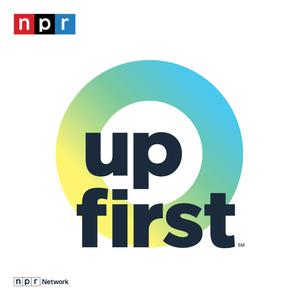
SlatorPod
Slator
SlatorPod is the weekly language industry podcast where we discuss the most important news and trends in translation, localization, and language technology. Brought to you by Slator.com.
- 30 minutes 20 seconds#237 DeepL Voice Launch and Interpreter Job Surprise
Florian and Esther discuss the language industry news of the week, focusing on Slator’s latest M&A and Funding Report, which highlights over 50 mergers, acquisitions, and financial investments, and nearly 20 funding rounds in 2024.
Florian discusses OpenAI’s ChatGPT o1 model, praising its translation accuracy for complex texts like German legal documents, though he notes slower processing speeds and challenges with low-resource languages.
In Esther’s first M&A and funding corner for 2025, MotionPoint has acquired KeyContent, Synthesia has raised a USD 180m Series D, bringing its valuation to over USD 2bn, and Pocketalk raised USD 15.8m in funding, despite talks of a potential IPO last year.
Florian talks about Acrolinx’s leadership change, with Matt Blumberg becoming CEO and aiming to expand the AI-powered content governance platform’s presence in the US market. DeepL launched its AI-powered speech-to-speech translation product, DeepL Voice, with NEC as its first enterprise client.
Esther notes LinkedIn's ranking of “Interpreter” as the 22nd fastest-growing job in the UK, driven by demand across industries like localization, museums, and even zoos. Florian wraps up with AWS’s latest guide on integrating translation memories with large language models to improve AI-driven translation workflows.
17 January 2025, 10:00 am - 44 minutes 45 seconds#236 The Year in Review and 2025 Predictions!
In the 2024 year-end episode of SlatorPod, hosts Florian Faes and Esther Bond, along with guest Anna Wyndham, explore pivotal language industry trends from the past year and predictions for 2025.
First, the language industry news of the week, with LXT’s acquisition of clickworker, which aims to expand its AI data capabilities and potentially double revenues by 2025. Meanwhile, Esther shares how EzDubs, a speech translation startup, secured USD 4.2m in seed funding.
Florian notes that RWS reported stable revenues for 2024, with GBP 180m coming from AI-driven products and services. He also highlights YouTube’s AI dubbing rollout, unlocking new possibilities for multilingual content, though noting current limitations, like robotic voice quality.
The trio discusses the UK House of Lords inquiry into court interpreting and translation, which raised concerns about interpreter pay, quality issues, and AI’s role in quality assurance.
Reflecting on 2024, Anna outlines three major trends: speech-to-speech translation, “translation as a feature,” where translation capabilities are integrated into everyday software like project management tools, and the evolution of localization roles toward AI-driven skills.
Looking ahead, Anna predicts rapid AI adoption in the public sector due to cost constraints and scalability needs, while Florian anticipates further breakthroughs in machine translation quality estimation and potential IPOs in the language tech sector. Esther forecasts increased M&A activity as niche providers seek stability and scalability in a competitive environment.
20 December 2024, 10:00 am - 47 minutes 3 seconds#235 The Interpreting SAFE AI Task Force with Katharine Allen and Dr. Bill Rivers
Katharine Allen, Director of Language Industry Learning at Boostlingo, and Dr. Bill Rivers, Principal at WP Rivers & Associates, join SlatorPod to discuss the challenges and opportunities AI brings to interpreting. Both are founding members of the Interpreting SAFE AI Task Force, which aims to guide the responsible use of AI in language services.
Allen describes AI as a double-edged sword — capable of expanding multilingual access but limited in its ability to handle the nuanced human dialogue essential in fields like healthcare. She emphasizes the ongoing shift toward a hybrid model, where human interpreters collaborate with AI tools.
Rivers underscores the importance of ensuring AI solutions are “fit for purpose.” Drawing from his background in computational linguistics, he explains how insufficient data, particularly for lesser-diffused languages, limits AI’s reliability.
The duo express concern over the unregulated use of AI, citing examples where inaccuracies in AI translation led to significant consequences. The SAFE AI Task Force seeks to mitigate such risks by establishing guidelines and fostering collaboration across sectors.
Despite these challenges, Allen is optimistic about AI’s potential to help interpreters’ preparation and productivity, such as generating context-specific glossaries or simulating practice scenarios, saving time, and improving skill development. However, she cautions against over-reliance on AI, particularly in situations requiring deep human judgment.
Through the SAFE AI Task Force, Allen and Rivers advocate for collaboration and education to use AI responsibly, ensuring it serves as a tool to help interpreters rather than diminish the profession.
13 December 2024, 10:00 am - 28 minutes 14 seconds#234 RWS and BLEND Appoint New CEOs, Microsoft and Amazon Speech AI
Florian and Esther discuss the language industry news of the week, where they explore how AI is influencing content creation and translation, noting its progress and limitations.
A recent study on GPT-4 revealed its ability to match junior translators but lag behind experienced professionals, particularly in nuanced contexts. Florian highlights the public’s heightened perception of the risks of AI, such as OpenAI’s Whisper, in critical sectors such as healthcare, where transcription errors and hallucinations can have severe implications.
Esther delves into leadership transitions in the language industry, with notable appointments including Benjamin Faes, a tech veteran with experience at Google and AOL, as RWS’ new CEO.
Sorenson appointed Pajet Alves as CEO, while BLEND welcomed Yoav Ziv to lead after significant growth and acquisitions. Anna Albinsson took the helm at Gridly, with plans to expand beyond its gaming localization focus into MedTech and EdTech.
In M&A and funding, Esther covers Teleperformance’s acquisition of ZP Better Together for USD 490m, with plans to fold it into LanguageLine Solutions. Meanwhile, Writer.com raised USD 200m in Series C funding, to expand its generative AI capabilities.
Florian discusses big tech developments, such as Microsoft’s Translator Pro app for speech and document translation, while Amazon teased its "any-to-any" AI capabilities during the AWS re:Invent conference, hinting at future innovations in multilingual processing.
Florian unpacks Straker Translations’ financial results, which reflected industry trends of increased volumes but declining revenue, highlighting pricing pressures. Their new Verify.ai tool, designed to validate AI-generated translations, underscores the pivot toward technology.
6 December 2024, 11:00 am - 32 minutes 56 seconds#233 Charles Campbell on Juntos and the Future of Localization in Latin America
Charles Campbell, President of tbo., returns to SlatorPod for round 2 to talk about his efforts to unite and professionalize the language services industry in Latin America and the Caribbean through the association Juntos.
Founded just before the pandemic, Juntos aims to raise standards in translation, interpreting, and localization by fostering collaboration, mentoring, and quality benchmarking. Despite challenges posed by the vast geography and diverse cultural landscape, the organization has seen significant growth, hosting conferences in Rio de Janeiro and Lima, with the next planned for Mexico City in 2025.
Campbell sees immense potential in Latin America, noting its rich linguistic diversity and a growing pool of passionate professionals entering the field. While many countries in the region lack the established quality norms and associations found in Europe or North America, Juntos is actively working to close this gap. He also highlights the affordability of hosting events in the region, coupled with its cultural richness, as factors drawing increased international participation.
Campbell addresses the role of AI in the industry, recognizing its strengths in high-resource languages like Spanish and Portuguese. He stresses that while AI is a valuable tool, human expertise remains essential, particularly in nuanced and culturally specific translations.
As Latin America and the Caribbean continue to gain visibility in the language industry, Campbell remains optimistic. Through Juntos, he encourages stakeholders to collaborate, innovate, and embrace the region’s unique opportunities.
29 November 2024, 10:00 am - 27 minutes#232 Reddit Rises on AI Translation, TransPerfect Buys Studio
Florian and Esther discuss the language industry news of the week, with Slator’s latest Translation as a Feature (TaaF) Report, which explores how AI translation is becoming an integral feature in enterprise technology.
Florian talks about Reddit’s success with machine translation (MT). By localizing content into French, the social media platform quadrupled daily active users in France, demonstrating the high ROI of investing millions in AI-driven localization each quarter.
In an M&A corner, Esther discusses Wolfestone’s acquisition of TauRho Transcribes, beefing up Wolfestone’s offerings in transcription and life sciences. She also covers TransPerfect’s fourth acquisition of 2024 with Plint selling its Netherlands-based media localization studio to the Super Agency.
Esther highlights Panjaya.ai’s USD 9.5m funding for BodyTalk, which perfects multilingual AI translation by synchronizing lip movements and gestures. Meanwhile, Neuphonic, a UK-based voice AI startup focused on ultra-low latency speech technology, has raised GBP 3m in pre-seed funding.
Florian reviews major AI launches: Translated’s Lara, a customizable large-scale AI-powered translation model, DeepL’s "DeepL Voice", offering real-time speech-to-text capabilities, and Unbabel’s Widn.AI, a platform offering advanced MT customization.
15 November 2024, 12:00 pm - 58 minutes 35 seconds#231 AI Impact on Media Localization with ZOO Digital CEO Stuart Green
Stuart Green, CEO of ZOO Digital (ZOO), joins SlatorPod to discuss the role of AI in media localization and the essential role human linguists will continue to play in producing high-authenticity content in multiple languages.
A technologist by training, Stuart recounts his entry into the media localization industry and how ZOO transitioned from DVD production to leading-edge solutions in multilingual entertainment content.
The CEO shares key highlights from ZOO’s AI white paper, “Will Robots Take Over The World of Localisation?”, where he views AI as a valuable “artificial assistant” rather than a replacement for human talent. As such, AI can streamline repetitive tasks and support creatives by handling administrative duties, thus allowing them to focus on higher-value work.
On AI lip-syncing Green suggests that it could mitigate the common mismatch between speech and mouth movements in dubbed media. However, he emphasizes that maintaining the “suspension of disbelief” in high-value content requires nuanced, culturally relevant adaptation — a task that still demands human interpretation of context, mood, and subtle humor.
While AI tools are improving, particularly in speech-to-text accuracy, Green foresees human expertise remaining integral in areas demanding cultural nuance and emotional resonance. He highlights ZOO’s commitment to quality-driven localization for major entertainment clients and the unique demands of its publicly listed status, balancing transparency with the need for a competitive edge.
8 November 2024, 9:00 am - 41 minutes 54 seconds#230 Christian Elongue on Advancing the Language Industry in Africa
Christian Elongue, Managing Director of Ghana-based consulting firm and language service provider (LSP) Kabod Group, joins SlatorPod to share his insights into the African language services landscape, recounting his journey into language advocacy.
Christian describes Kabod Group as a dual-purpose organization, offering translation services primarily to nonprofit clients, while advancing social impact projects for African language professionals with initiatives such as the Network of African Language Translators and Teachers (ALATT) and the Association of Language Companies in Africa (ALCA).
Christian discusses the unique challenges of Africa’s language landscape, which spans over 2,000 languages and requires localized solutions. He notes that demand varies widely across regions, with West Africa focused on French-English translation, East Africa on Swahili, and North Africa on Arabic. However, limited data and lack of standardization pose challenges for developing language technologies and machine translation for African languages.
To address these gaps, Christian advocates for increased local investment in African language technology. He highlights projects like Masakhane, which develops datasets for low-resource languages but stresses the need for more African-led funding. Christian also urges international LSPs to support Africa’s language industry by sharing resources and facilitating professional exchanges.
Christian concludes the podcast with a call to action: empowering African languages is key to preserving cultural heritage and fostering economic growth.
1 November 2024, 10:00 am - 38 minutes 16 seconds#229 Leading Localization from Asia with EC Innovations’ Sijie Wei
Sijie Wei, Co-CEO of language services, technology, and game localization specialist EC Innovations (ECI), joins SlatorPod to talk about his new role as co-CEO and leading one of Asia’s largest LSPs with revenues exceeding USD 50m in 2023.
Sijie shares how ECI, initially focused on helping Western blue-chip firms enter China, expanded to assisting Chinese tech giants like Tencent and ByteDance in globalizing their products.
Sijie highlighted the challenges of the Asia-Pacific market, where localization maturity still lags that of the US and Europe in certain verticals. However, he sees significant growth potential as industries like e-commerce, AI, and electric vehicles mature.
Regarding language AI, Sijie pointed out that Chinese companies prefer to develop their own solutions, making the market highly competitive. ECI benefits from this research, applying cutting-edge advancements in AI to client projects.
In game localization, Sijie continues to see substantial growth potential. He recognizes that localizing games from China to global markets and vice versa is equally challenging due to differences in player preferences, monetization methods, and cultural contexts.
Sijie gave his insights on the investment landscape, noting that current market valuations are lower due to uncertainty around AI adoption across industries like localization.
Sijie concluded by addressing the balance between AI and human expertise in localization, emphasizing that while AI can drive efficiency, human quality remains superior in many contexts.
28 October 2024, 11:00 am - 29 minutes 26 seconds#228 OpenAI’s Advanced Voice Mode and Interpreting, AI Dubs for Instagram
Florian and Esther discuss the language industry news of the week, with Slator’s latest Pro Guide on Audiovisual Translation, which outlines opportunities for language service providers (LSPs) and how AI is impacting the field.
In a language AI corner, Florian covers Alibaba’s recent launch of a proprietary large language model (LLM) for translation, which will help expand the e-commerce giant’s global reach. He also adds that Reddit has piloted machine translation (MT) for French content, a success that will see it roll out to more than 35 countries.
Florian highlights NVIDIA’s move into MT and transcription services, adding to the growing competition in AI-driven language solutions. He talks about Meta's AI-powered lip-sync dubbing for content creators, bringing AI into the social media space.
The duo dive into OpenAI’s advanced voice mode, which allows for real-time communication in multiple languages through ChatGPT. Esther notes its potential for consecutive interpreting, though simultaneous interpreting remains a challenge.
Esther shares key takeaways from the recent AMTA conference in Chicago, noting that a key focus was how LLMs are influencing MT. She also discusses Propio’s rapid expansion through its acquisitions of ULG, Akorbi, and ASL, making it one of the largest LSPs globally.
Wrapping up, Esther discusses Gladia, an AI start-up specializing in real-time speech-to-text solutions, that recently raised USD 16m in Series A funding.
23 October 2024, 11:00 am - 50 minutes 32 seconds#227 Leading a Boutique LSP with GORR Co-founders Gregor and Olivera Rosulnik
Gregor and Olivera Rosulnik, Co-founders of Slovenia-based language service provider GORR, join SlatorPod to discuss their journey into the language industry, the challenges they faced, and the strategies they've employed to grow their business.
Gregor and Olivera share how they initially targeted Slovenian companies, especially startups and scaleups, and after adjusting their focus, expanded internationally to also work with government entities and large corporations.
The duo highlights their use of AI tools to enhance their language services, noting the improvements in machine translation quality over the years. However, they acknowledge the perception challenges posed by AI, where clients might erroneously assume that translation is a completely automated process.
Gregor emphasizes the importance of resilience and adaptation, noting that ‘crises’ like ChatGPT are a natural part of business and that success often depends on how well a company can navigate through them.
Discussing their approach to vendor management, Olivera emphasizes the importance of recommendations and personal interactions in building a reliable network of qualified linguists.
Looking forward, Gregor and Olivera aim to grow sustainably by focusing on quality service, nurturing client relationships, and integrating new technologies, all while maintaining their core values and commitment to communication.
10 October 2024, 9:00 am - More Episodes? Get the App
Your feedback is valuable to us. Should you encounter any bugs, glitches, lack of functionality or other problems, please email us on [email protected] or join Moon.FM Telegram Group where you can talk directly to the dev team who are happy to answer any queries.
 Troublesome Terps
Troublesome Terps
 Up First from NPR
Up First from NPR
 Today, Explained
Today, Explained
 Børsen Morgenbriefing
Børsen Morgenbriefing
 Marketing tips for translators - podcast
Marketing tips for translators - podcast